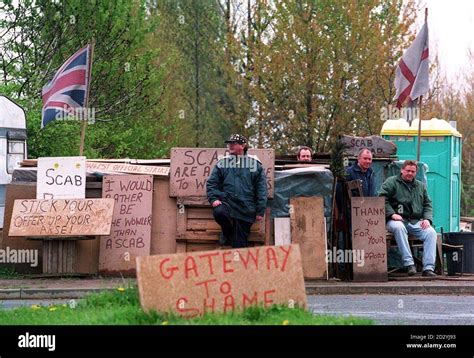Two workers have been dismissed, and investigations are underway at Woolworths following a 17-day strike that cost the company over $100 million in sales. In November, approximately 1,500 warehouse staff from four distribution centers in New South Wales and Victoria went on industrial action protesting pay and workplace conditions.
The controversy surrounds alleged picketing on November 26 outside warehouses not involved in the strike. Primary Connect, Woolworths’ supply chain division, is conducting numerous investigations into what they consider “unlawful picketing.” While employees who lawfully participated in protected industrial action will not face discipline, those involved in unauthorized activities are under scrutiny.
Investigations Unfold
According to letters received by Guardian Australia, workers at striking sites have been notified of internal investigations focusing on pickets held outside warehouses not part of the strike. The supermarket giant has accused individuals of actions such as “blocking the exit and entry” of vehicles. Two employees have already been terminated for their conduct during the strike period.
United Workers Union is representing its members embroiled in these investigations to ensure fair outcomes. The union refrained from confirming details but emphasized advocating for its members’ best interests during this challenging time.
Retail Giant’s Response
In response to allegations against its employees, Woolworths stated that those under investigation would be given an opportunity to respond before any final decisions were made. However, some workers view these internal probes as retaliatory measures taken by the company due to financial losses incurred during the strike.
John Howe, an expert in industrial relations law at Melbourne Law School, warned about potential vulnerabilities faced by striking workers when picketing sites beyond their own workplace boundaries. Despite ongoing disputes and investigations post-strike, workers managed to secure pay rises ranging between 4% to 4.5% for the first year and subsequent increases between 3.15% and 4.5%.
Challenges Amid Negotiations
Formal meetings were scheduled for January 6th to address allegations raised during the strike period intensifying labor relations tension within Woolworths’ workforce. Prior concerns highlighted by Guardian Australia regarding rigorous efficiency standards imposed on employees led to significant changes post-negotiations with new language addressing performance management concerns included in updated workplace agreements.
The developments within Woolworths reflect a complex interplay between labor rights advocacy and corporate responses amid escalating tensions over working conditions and pay disparities within Australia’s retail sector.

